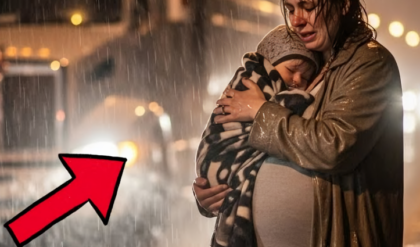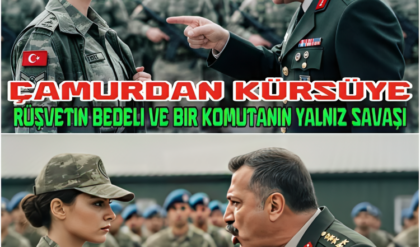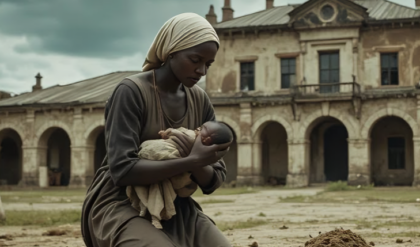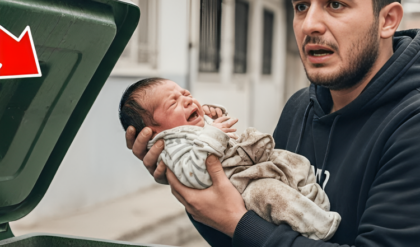La foto que lo cambió todo: Veintidós años después de la desaparición de Lena
Her daughter disappeared in 1990—the same day as her graduation. Twenty-two years later, his father would stumble upon an old photo album that would change everything.
It was a warm June night. The sky sparkled with stars, and all over the house floated the scent of lilacs and freshly baked vanilla cake—her mother’s birthday gift. Lena twirled in front of the mirror in a pale blue dress, laughing, radiant. Her father, Nikolai, looked at her and thought: This must be happiness.
No one could know that would be their last night together.
.
.
.

After the graduation party, Lena never came home. Not that night, not the next day, not even a week later. The search went on for months, but it was futile. Police shrugged helplessly, witnesses contradicted, and the only clue—a rumor about a girl spotted next to the freeway—was false.
The years slip away in silence. Olga, the mother, locked herself in and barely left the house. Nikolai has aged way too fast. Hope, once a constant flame, became a faint flicker between the shadows.
And then—2012.
On a rainy October afternoon, Nikolai climbed up the attic to clear the dust and clutter. Boxes of books, toys and forgotten memories surrounded him. It was then when she saw it: the photo album. Lena’s. Their childhood sealed in pictures—school plays, summer trips, their first day of classes.
Her heart raced as she turned the pages There was Lena in her uniform, Lena with her friends in the garden. But then—it froze. A photo I had never seen before.
It showed an adult Lena, about thirty years old, standing next to a wooden house with mountains in the background. On the back, written with his writing:
2002. I’m alive. Forgive me.
Nikolai almost dropped the album. Her hands shook as if the ground beneath her feet had changed.
That single photo opened a new chapter—a desperate search for answers. Who put her there? How did she get on the album? And most of all: where had Lena been all these years?
He took the photo downstairs and silently handed it over to Olga. She gazed at her, hands trembling. Her eyes, dimmed by grief for so long, gleamed with fragile hope.
“It’s her… ” he whispered. “It’s our Lena. ”
They sat for hours, without talking, staring at the faded picture. In a corner of the photo a sign read: Gostinica Zvezda—Hotel Estrella.
Nikolai brought a magnifying glass and they hardly read the words again: 2002. I’m alive. Forgive me. L.
“She was alive… ” he whispered. “For twelve years… and he didn’t say anything. Why? ”
The next morning, the quest began. Found the hotel on the Internet—it still existed, in a remote mountain village in Kyrgyzstan. Without hesitation, he packed his suitcase, withdrew his savings and left.
The trip was long—train, ferry, buses, then an old van whining as it climbed the mountain’s serpentine roads. The higher, colder, and narrower the air became. When Nikolai arrived in the village, his heart pounded with the weight of hope and fear.
The hotel was there, as in the photograph—the old wooden facade, the faded sign. Inside, it smelled like pine and on time. At the counter, a middle aged woman.
“I’m sorry,” said Nikolai, the broken voice. “Do you know a woman named Lena?” Lena Nikolaeva. Maybe he stayed here…. about ten years ago. ”
The woman watched him closely.
“Are you Nikolai? Your father ? ”
He just stopped breathing. “Yes. ”
She nodded slowly, opened a drawer, and pulled out a spent envelope. About him, in large, uneven letters, read: For Dad. Only if he comes by himself.
Nikolai’s hands were shaking when he opened it.
Dad.
If you’re reading this, it’s me wrong. I was gone that night in 1990. Not from you—from fear. Messed with the wrong people. And then it was too late to go back. Shame kept me away.
I’m alive. I have a son. It’s called Artyom. He never met you.
So many times I wanted to write, but never dared.
If you’ve found this—look for me. I’m getting close.
Forgive me.
L.
Nikolai read the letter over and over until tears clouded his sight. His hands were shaking so bad he could barely hold the paper.
“He’s in the neighboring village,” the woman said softly. “If he wants, I can take him there. ”





